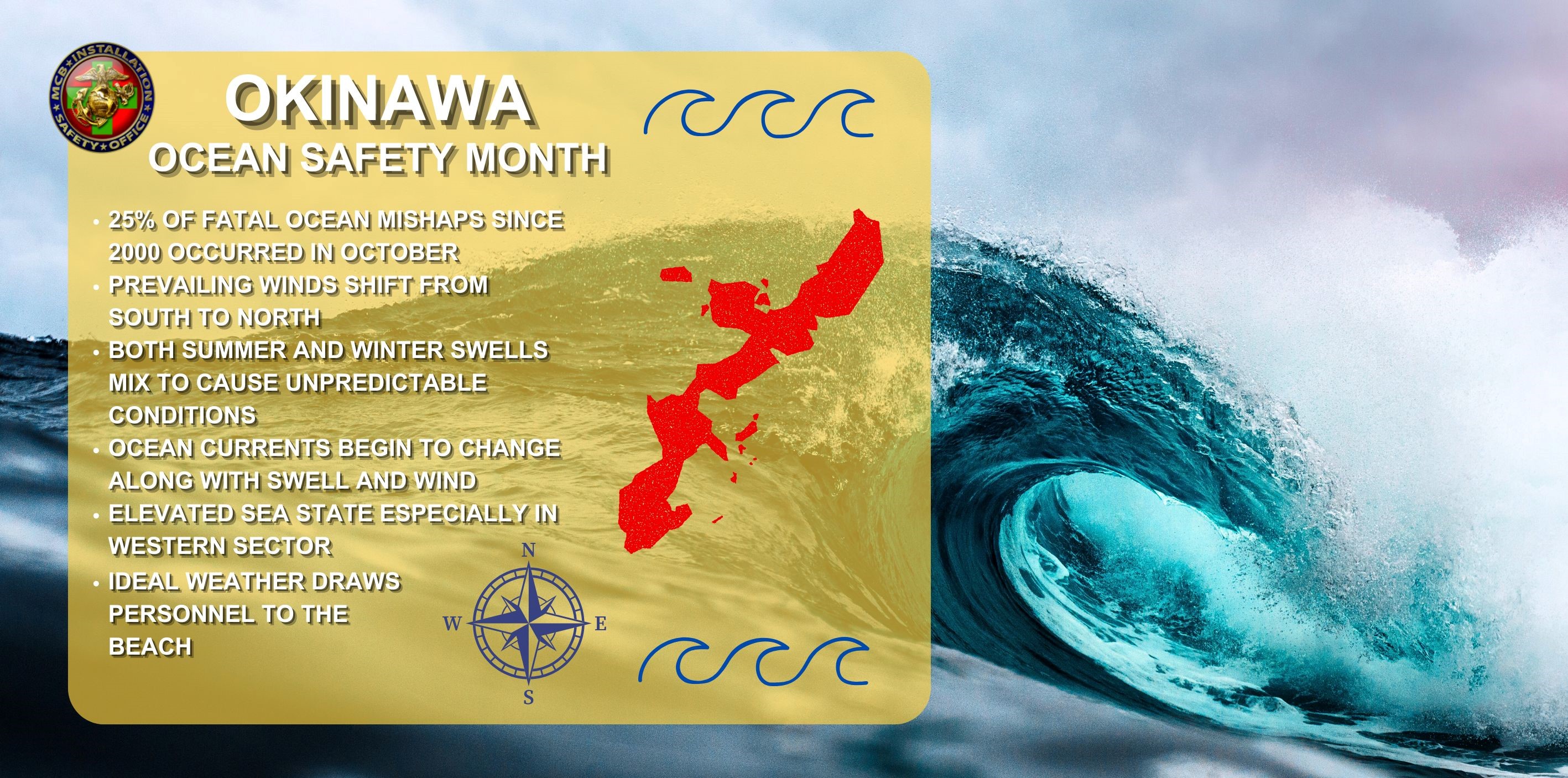SEASONAL WIND AND WATER CONDITIONS

OCTOBER IS OCEAN SAFETY MONTH
Did you know that approximately 25% of fatal ocean drownings (SOFA personnel) on Okinawa occur within the month of October?
That’s right! Of forty recreational drownings since 2000, ten have occurred in an October month. During this month we are still in Okinawa’s typhoon season. As summer storms push further and further north, some of the most powerful storms come at the end of the season. And the storms that don’t make landfall on Okinawa’s shores send high surf which can be treacherous.
October is also the month that separates two seasons of relatively predictable ocean conditions.
Summer ocean conditions (May to September) are denoted by calm seas or small southerly swells and light southerly winds, with occasional high surf approaching from the south ahead of Tropical Storms and Typhoons.
During winter months (November to April) cold fronts out of Siberia bring high winds and northerly swells much more frequently, with elevated sea states occurring every 7 to 10 days for west sector beaches and dive sites.
While hazardous water conditions can be found in any season, both summer and winter wind and swell patterns are predictable and easier to forecast. However, October sees a mix of both summer, and winter, winds and waves. Swell direction is often mixed, with waves approaching from the north, south, east, and west, creating a “washing machine” effect, and severe coastal currents at popular beaches around the island.
To make matters worse, October arrives after our PCS season when many families’ household goods have arrived and personnel are beginning to explore the island’s beaches for the first time.
Lastly, October produces some of the very best weather of the year on Okinawa. The summer heat has abated, and we see warm but milder temperatures, with minimal precipitation as we move into the drier winter season.
October is the best time of the year, and the deadliest, to plan a trip to the beach.
We can mitigate much of the risks involved in ocean recreation by following a few key Ocean Safety tips.
When planning a trip to the beach, make sure to always;
- Check your Sea Conditions before entering the water, which can be found on your MCCS Okinawa Liberty App.
- Wear a floatation device and remember that snorkeling vests are free and available to you.
- Use the buddy system at all times in the ocean.
- Have a plan and let someone know where you plan to enter the ocean and what time you expect to return.
- Consider your abilities as a swimmer, surfer, diver, etc. and plan your ocean recreation accordingly.
- Always swim, surf, paddle, snorkel, and dive within your limits.